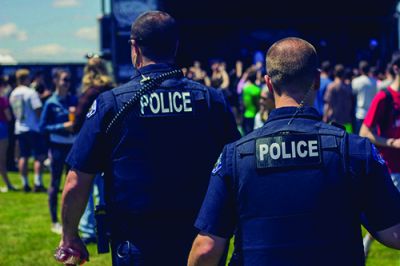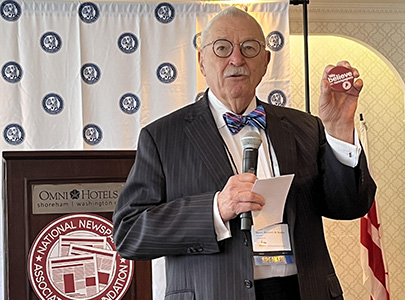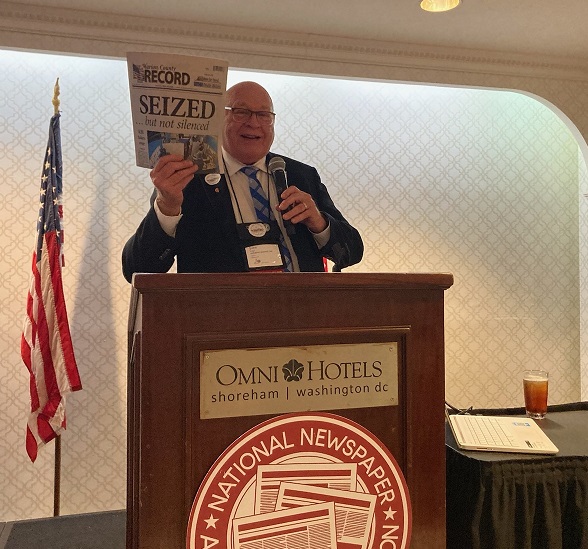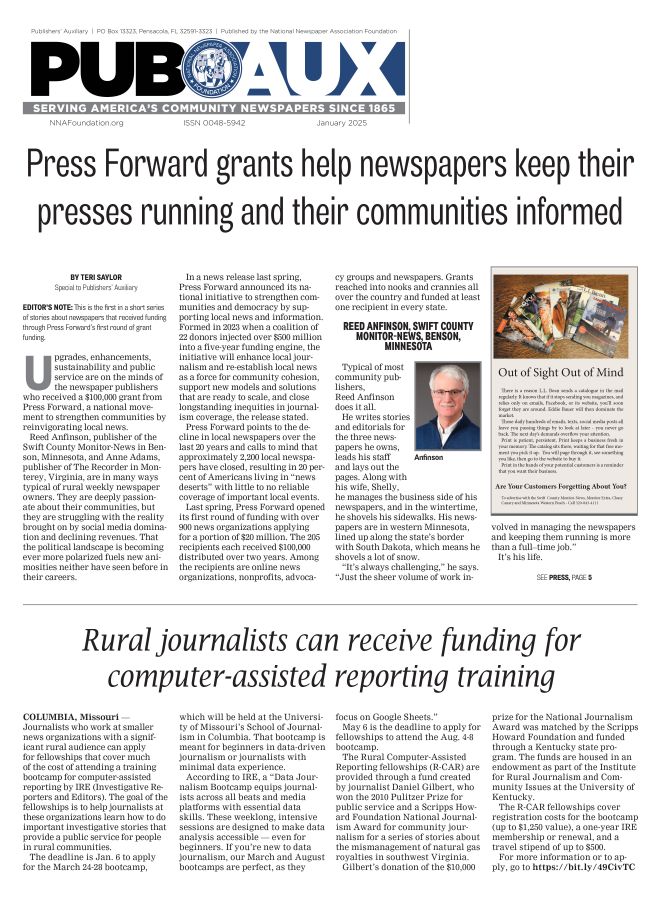Attention police: Stop attacking journalists for doing their jobs
First Five by the Freedom Forum Institute
Sep 17, 2020

GENE POLICINSKI
Click here to download Word doc.
Enough is enough — and too much.
In the latest of dozens of such incidents just this year, a Los Angeles radio journalist was attacked by sheriff’s deputies while recently reporting on a protest outside a hospital.
Yes, attacked. Not the legalistic “taken into custody,” or the softer if-accurate, catch-all term “arrested.”
Attacked.
Reporter Josie Huang of radio station KPCC and its sister site, LAist — despite video proving she repeatedly identified herself as a reporter — was thrown violently to the ground by several officers while observing the arrest of a protester authorities said was being “uncooperative.”
The first statement by the sheriff’s department said Huang “ran toward deputies, ignored repeated commands to stay back … and interfered with the arrest.” A police spokesperson also said she failed to identify herself as “press.” She was taken to a local jail.
When confronted with multiple videos and audio from Huang’s own cellphone refuting each of those allegations, the spokesperson refused to respond directly, saying the matter was under investigation.
The event is as disgusting as it was unnecessary. The police conduct appears as unwarranted as the official account is contradicted by what can be seen and documented. The incident now joins a trendline that is as an appalling insult to individual rights as it is to the First Amendment freedoms that protect us all.
Huang was at a hospital earlier on the day of her arrest to attend a press conference regarding two deputies who had been shot in a cowardly ambush by an as-yet unknown assailant.
Huang was in her car in the hospital garage, typing notes from the press event, when she heard shouting outside. In a series of Facebook posts, she said she “saw a commotion ahead of me. Deputies rushed one man and chased another. I was filming an arrest when suddenly deputies shout ‘back up.’ Within seconds, I was getting shoved around. There was nowhere to back up.”
Video from other news operations shows Huang takes a few steps backward, but is grabbed and thrown to the ground by an officer. Her cell phone is knocked from her hand and several officers pile onto her.
“After my phone drops, it keeps recording and it captures two deputies damaging my phone by kicking and stepping on it. I can hear myself in the background shouting: “You guys are hurting me” and “Stop it.” Not only did Huang shout her KPCC affiliation, a press ID card on a lanyard around her neck is clearly visible in video of the attack.
It is understandable that deputies might be on edge after a vicious assault on two of their own. But the attack on Huang took place hours later, away from the scene of the shooting. Emotions should be in check and training should take over at such a point.
Granted, civil disturbances create chaotic moments. But by all accounts, the protest group was small — and only one demonstrator was being arrested.
What cannot be understood, and what should not be taken for granted, is that police nationwide have shown repeated, and at times vicious and life-threatening disregard for the First Amendment right of journalists to document their actions, even at the most challenging moments.
“Assault” is a crime — whether committed by a coward who slinks up to a patrol car and shoots two officers, or by those in uniform and wearing badges in full view of news cameras. For that matter, so is “testi-lying” — a word even authorities use to describe official accounts in which facts are twisted or simply invented to mask illegal conduct.
A hallmark of repressive regimes is their “secret” police, unaccountable to anyone but despots and operating out of sight and without accountability. The thousands of police officers who deserve our respect and admiration should not be tarnished by those who would act in violation of laws out of anger, disrespect or baser instincts.
Attacks on journalists certainly are nothing new worldwide. From the murder of abolitionist editors by pro-slavery mobs in the 1800s to bigoted assaults in the 1950s and 1960s on reporters covering the civil rights movement, to the insane 2018 shooting of five staffers at The Capital Gazette in Annapolis, Maryland, journalism has been — and is — a dangerous profession.
But this year, the U.S. Press Freedom Tracker (a watchdog coalition to which the Freedom Forum belongs) reports as of Sept. 15 that 191 journalists have been attacked, 61 arrested, with some “812+ reported aggressions against the press.”
By virtue of the Constitution, the Bill of Rights and a pledged allegiance to the rule of law, all of us — police, protesters and public officials — should be better than that.
Huang is charged with interfering with the arrest. If a formal inquiry bears out her account and the video evidence, that charge will be dropped. Perhaps a settlement will occur. It’s unlikely the officers involved will be prosecuted, as anyone else who grabbed and tackled a person on the street would certainly be.
City officials and Los Angeles County Inspector General Max Huntsman, an independent monitor for the sheriff’s department, have opened their own investigations into the attack on Huang. Said Huntsman, “What surprises me the most is that once she was identified as a reporter that they transported her, that they cited her.”
In this year of attacks again and again on journalists simply for doing their jobs on behalf of the public, we can only wish we could be as surprised as Huntsman.










